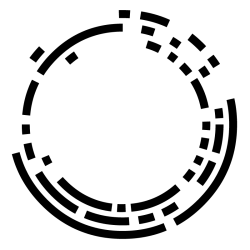Spoiler: because otherwise they would be mentors, not coaches..
A while ago, I wrote an article about striving to be an expert in not being an expert.
I only marginally linked that idea to my coaching practice, so I decided to go deeper into it, this time touching on the benefits a non-expert coach posture could bring for the client.
There are two main outcomes clients look for when starting a coaching agreement: They either want to feel better, or to do better. Of course these basic objectives are formulated in divers ways: from “finding more balance” to “being more focused” and from “landing a job” to “increasing one’s impact” , but studying over 100 answers my clients gave to the question: “what do you want to achieve by the end of our coaching agreement” there isn’t one that does not fall into one of the above mentioned categories.
People shouldn’t look to coaches for expertise or information. There are other very qualitative sources for that which are -if not free- at least much cheaper than coaching.
Patrick Mouratoglou isn’t teaching Serena Williams how to hit the ball. There is hardly anybody who can teach her that. He is helping her identify her physical and psychological strengths and weaknesses and autonomously develop ways to manage them in order to achieve her desired outcome: which is to be the world’s best tennis player.
As a client, the main thing I would be looking for in a coach would be her capacity to create a space for me to grow. Like any relationship, the coaching relationship has an unspoken dimension that influences the outcome of the partnership sometimes even more than what is in the open.
A CEO looking to make the final decision on an M&A transaction does not need expertise. He’s already gone through a thorough process with his team of experts and has everybody’s opinion. He also probably already knows some of the vested interests his team members have. He’s not looking for the coach’s opinion or M&A expertise. He wants a clear, unintruded space where he can unwrap his thoughts on the matter without having to be weary of the other person’s biases or blind-spots.
No matter one’s level of competence in an area, there will always be unconscious patterns that are influencing one’s decisions. As mentioned in this article, the things we don’t accept in ourselves are usually the ones we project, so consequently the ones we perceive from reality. These projections are what create blind-spots. And these blind-spots are usually what hinder us from achieving whatever we want to achieve.
There’s a caveat: this hinderance is not necessarily a bad thing. Maybe what we are trying to achieve is not good for us, so our unconscious self is hindering us in order to help us find the right track. Or maybe it’s exactly the right thing for us, but the way we have been programmed determines a self-sabotage protocol in order to protect the programming itself. There is no level of expertise in the content the Client brings that can enable a Coach to accompany his Client through this type of process.
The more expertise a Coach has, the more he will be tempted to offer solutions. And most of the time, the Client will answer with one variation of the TA game “yes, but…”
There is however something that can help the Coach navigate these very slippery slopes. It’s called Coaching Presence. It is probably the most important “tool” in coaching and generally refers at the Coach’s capacity to let go of her unconscious patterns and focus all her energy in the now. This not only creates that safe space for the Client to grow, but models this state of consciousness for the Client so that he can use it to deepen his work.
I dare to say that Presence is THE ONLY EXPERTISE that is needed in coaching.

